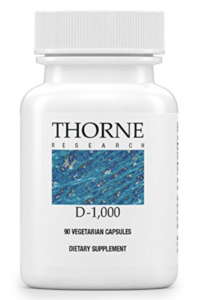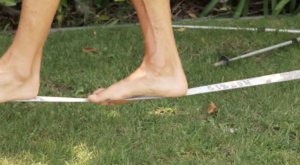Watch out for crazy posts like the one above. Vegetables DON’T cause weight gain. That’s the this stupidest thing I’ve seen on the internet in a while and it directly contradicts one of the 5 things that we know you can do to improve your overall health, eat more vegetables. Are some vegetables better than others? Sure, but no vegetable is bad for you and to suggest that people are getting fat because they are eating the wrong vegetables is ridiculous.
This is when a little common sense and years of peer reviewed research come in handy. So, here are 5 simple things you can do, based on mountains of peer reviewed research that will definitely improve your overall health, help protect you from cancer, heart disease, diabetes, and dementia, and make you feel better too!
Five Things Everyone Should Do To Improve Their Health
Step one: Give up sugar sweetened drinks.
This includes sodas, juices, sports drinks, and sweetened tea. Giving up your favorite drink isn’t easy, so take it slow if you need to. Order 2/3 sweet tea and 1/3 unsweetened for a while and see how your body adjusts. Then go back to the 100% sweet tea and notice how overpowering the sweetness is to you. That going back for a second is a wonderful way to prove to yourself that your body adjusts to what you are used to. Then move to 1/2 sweet and 1/2 unsweetened and try that for a while.
It’s always a good idea to drink more water. So buy yourself a Brita water filter and filter your water so it tastes good to you. Unsweetened iced tea is great, especially green tea. For green tea I recommend you find a high quality one with a strong green tea flavor, that’s where all the antioxidants are found. Choice tea is my favorite, you can just taste the phytonutrients and antioxidants with each sip and their packaging is environmentally friendly. I also love the little mini San Pelegrino glass bottles. It took me a while to warm up to them but now I drink them anytime I’m having a soda craving. If you are having trouble kicking the soda habit, try a homemade versions of Radar O’Riley’s grape soda!

Step two: Train your body for intermittent fasting.
Intermittent fasting is simply giving your body a break from eating. Research suggests this is one of the most important things you can do to reduce your risk of all types of diseases because it gives your body a much needed break to focus on healing and repairing cell damage. If you eat a whole foods diet, fasting becomes much easier, eating a lot of processed foods means you will have unnatural spikes in your blood sugar levels that make fasting more of a challenge. The research suggests having a window of about 9-12 hours where you eat each day, then giving your body a rest, will help you lose weight, improve your glucose levels, and reduce your risk of diabetes, heart disease, and stroke. The good news is you can even take the weekends off from fasting and still maintain the health results. Check out Joe Rogan and Dr. Rhonda’s program on intermittent fasting.

Step three: Eat more vegetables.
Any chance you get, eat more vegetables. I once had a client say to me that putting cheese sauce on your broccoli defeats the purpose. That’s crazy talk. If you’re going to eat more vegetables they need to taste good to you so if cheese sauce is what it takes go for it. The idea that healthy food can’t taste good is a myth. Would it be better to eat the broccoli with out the cheese sauce? Yes. But it would be worse to not eat the broccoli. For a salty crunchy treat bursting with good stuff try my Simple Crispy Kale Chips recipe.

Here are some of my favorite tips for getting more vegetables into your diet:
- Order a salad with every meal.
- Start eating vegetables for breakfast.
- Have soup for breakfast in the winter.
- Spend the extra money and get a side order of vegetables at a restaurant.
- Learn how to cook any vegetable, just a little water, olive oil, salt and pepper in the pan and steam till bright green but tender.
Start filling you plate with vegetables:

Step four: Have your vitamin D level checked.
Have your vitamin levels checked, especially your vitamin D. If there is something wrong with you, this should ALWAYS be the first thing you do. Don’t let your doctor start prescribing a bunch of pharmaceutical pills until you’ve looked into what might be causing the problem in the first place. Seventy percent of Americans are low in vitamin D due to the over use of sun screen and staying inside all day. A deficiency in vitamin D is associated with all kinds of health problems including greater susceptibility to infection, reduced brain function, lower exercise performance. Dr. Rhonda Patrick recommends 40-60ng/ml level to achieve the best results.

Step five: Learn to enjoy exercise.
The more you move, the healthier you are, period. So look for all kinds of ways to move your body.
Don’t just take the stairs, when you take the stairs make it a work out, pay attention, pick up your legs a little higher, take two steps at a time.
Set up a walking club so when you walk you also benefit from being part of a community.
Set a goal of exercising 3 times a day, before you start your day do 10 sit-ups, 10 squats, and 10 push ups, go for a walk every day at lunch, and hit the gym or walk with family or friends in the evening.
Take up a hobby that gets you moving around like a dance class or give slacklining a try!

Set a timer that gets you to stand up from your desk once an hour and stretch a bit.
Your body will thank you, and most importantly, your brain will thank you with improved mood and memory function.
If you have any other cool exercise or health tips please share them in the comments below. Your idea, and credit, may be included in my next book!
